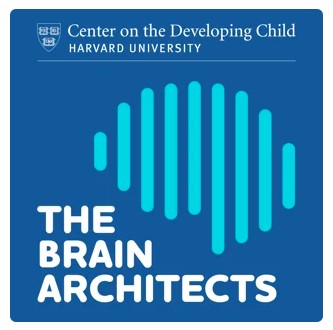Webinars for Families
May 10, 2022
The Building Early Connections Center recently hosted a series of webinars for families. We invite all parents and caregivers to view the event recordings below, and we hope you find these resources helpful.
Two Years Into a Global Pandemic: How Caregivers Can Support Themselves and Their Children
Led by Sarah Jolie, MA, and Emily Wolodiger, PhD, this session discusses the impact of the COVID-19 pandemic, provides tools for helping your child cope during uncertainty, and offers strategies for caregivers to help manage their own stress in these challenging times.
Understanding Your Young Child's Development
Led by Cynthia Pierre, PhD, this presentation explains childhood development milestones, and the factors that influence how individual children grow.
Understanding Your Young Child's Behavior
Led by Ashlee Taylor, LSW and Megan Donahue, LCSW, this session looks at the functions and the "A-B-Cs" of childhood behavior, and explores methods for managing your child's behavior.
Mental Health Issues and the African American Community
Published in: KevinMD
Author: Lashawnda Thornton, MS, MSW
March 30, 2022

Death is a topic that most people try to avoid. Death by suicide is also something that that remains rarely discussed. This is probably because suicide is scary, particularly if we have thoughts of being the loved one left behind. People considering suicide don’t take the time to let people know that they are considering suicide; they tend to keep all these things bottled up to themselves.
As one writer explained, “when your entire spirit has reached the most extreme of lows, no one is able to love you out of that valley.”
The recent suicides of Chelsea Kryst, former Miss USA, and Ian Alexander Jr., actress Regina King’s son, were a shock to many individuals, especially the African American community. It had long been assumed that African Americans did not commit suicide. The numbers, however, tell a different story...
Adverse childhood experiences are beginning to be higher and higher in the African American communities, which can later cause a continuous increase in suicide rates. Within the current pandemic alone, there have been studies of suicide deaths by race, and it was found that suicide among white residents decreased by 45 percent during early 2020, while suicide among African American residents increased by 94 percent in early 2020.
Read the full article at kevinmd.com
CEA Affiliate Week
Assessing Evaluation Elements to Increase Sustainable Program Implementation and Health Equity
Published in: American Evaluation Association
Author: Christina Iyengar, DrPH
February 5, 2022

Hello! I am Dr. Christina Iyengar, from Rush University Medical Center. As the lead evaluator I support the Substance Abuse and Mental Health Services (SAMHSA) Linking Actions for Unmet Needs in Children’s Health (LAUNCH) grant. The Building Early Connections (BEC) program (currently in year 3) focuses on reducing health disparity in Chicago’s West Side. We have increased health equity through expanded access to evidence-based social-emotional and developmental screeners for young children that are administered at well-child visits. Children with emerging concerns are immediately linked to the BEC behavioral health intervention team for brief, individualized family interventions.
We took the opportunity to expand evaluation efforts to include frameworks that help assess evaluation elements. In doing so, we have increased our ability to build a sustainable program and increase health equity.
All program evaluation strategies align with SAMSHA’s Core strategies, Rush Community Health Implementation Plan Goals, and BEC’s domain-specific process and outcome evaluation activities. To support the evaluation strategies, we incorporated the dissemination and implementation sciences frameworks RE-AIM (Reach, Effectiveness, Adoption, Implementation, Maintenance) and CFIR (Consolidated Framework for Implementation Research) to help frame and communicate the behavioral health focused Building Early Connections program. The unique factors of RE-AIM provided balance between internal and external validity and directed attention to design and implementation processes, while the CFIR framework provided constructive process and implementation evaluation factors. When both frameworks are applied together, they complement each other and support domain-specific evaluation activities.
Read the full article at aea365.org
The Brain Architects
Connecting Health & Learning Part I: The Science
Produced by: Center on the Developing Child at Harvard University
December 10, 2020

How do our biological systems work together to respond to chronic stress? What do these responses mean for early learning and lifelong health? And when we say that early experiences matter, what do we mean by early? This episode of The Brain Architects podcast addresses all these questions and more!
The Brain Architects podcast, from the Center on the Developing Child at Harvard University, focuses on the specific, practical questions that often arise for parents and caregivers during the critically important period of early childhood. In this episode, Center Director Dr. Jack Shonkoff describes the body’s stress response system, how our biological systems act as a team when responding to chronic stress, and the effects chronic stress can have on lifelong health. This is followed by a discussion among a panel of scientists including Dr. Nicki Bush (University of California-San Francisco), Dr. Damien Fair (University of Minnesota), and Dr. Fernando Martinez (University of Arizona), discussing how our bodies respond to adversity, inflammation’s role in the stress response system, the effects of stress during the prenatal period and first few years after birth, and how we can use this science to prevent long-term impacts on our health.
Listen to the podcast or read the transcript here
CEA Affiliate Week
When Multidisciplinary Collaboration Leads to Identifying an Access Protective Factor
Published in: American Evaluation Association
Author: Christina Iyengar, DrPH
December 6, 2020

Hello! I am Dr. Christina Iyengar, from Rush University Medical Center. I am part of an evaluation team that supports a new initiative aimed to reduce health disparity on Chicago’s West Side. The program, Building Early Connections (BEC), seeks to improve systems of care within Rush University Medical Center for the most common social-emotional, behavioral and developmental concerns in young children, from 0- 8 years old. BEC has developed a coordinated screening, referrals, and brief intervention system for young children presenting in primary care clinical settings. Evidence-based social-emotional and developmental screeners are administered at well-child visits and children with emerging concerns are immediately linked to the BEC behavioral health intervention team for brief, individualized family interventions.
As the lead evaluator, I more closely examined protective factors (PF), factors that could decrease risk and vulnerabilities in the population. Our initial data collection identified six protective factors for BEC’s behavioral interventions: Guidance & Discipline, Home Environment, Parent Support, Parental Styles, Social-Emotional Development, and School Readiness. Further, BEC leaders wanted to determine whether screening and referral was an additional protective factor and its role in providing access to evidence-based interventions for families with young children. Our evaluation team conducted focus groups to better understand the role of the screening and referral as a system integrated protective factor within the Department of Pediatrics that lends access to resources.
